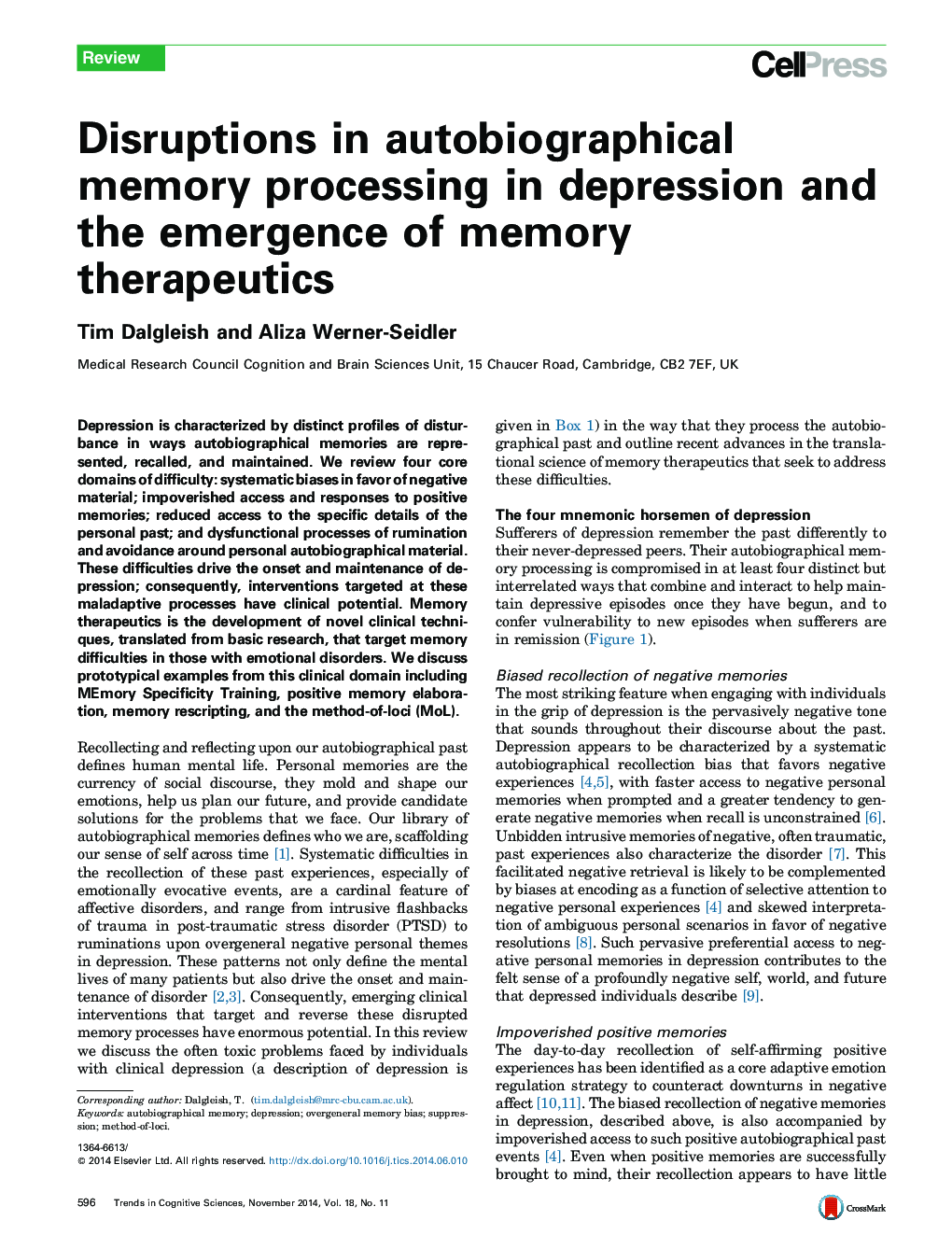| Article ID | Journal | Published Year | Pages | File Type |
|---|---|---|---|---|
| 141426 | Trends in Cognitive Sciences | 2014 | 9 Pages |
•Autobiographical memory disturbances drive the onset and maintenance of clinical depression.•Core difficulties comprise biases in favor of negative memories, impoverished positive memories, lack of specificity in recall, and rumination and avoidance around personal mnemonic themes.•Reversing or normalizing difficulties with autobiographical memory has great clinical potential.•Memory therapeutics is the development of cognitive interventions, translated from basic research, to ameliorate autobiographical memory disturbances in emotional disorders.
Depression is characterized by distinct profiles of disturbance in ways autobiographical memories are represented, recalled, and maintained. We review four core domains of difficulty: systematic biases in favor of negative material; impoverished access and responses to positive memories; reduced access to the specific details of the personal past; and dysfunctional processes of rumination and avoidance around personal autobiographical material. These difficulties drive the onset and maintenance of depression; consequently, interventions targeted at these maladaptive processes have clinical potential. Memory therapeutics is the development of novel clinical techniques, translated from basic research, that target memory difficulties in those with emotional disorders. We discuss prototypical examples from this clinical domain including MEmory Specificity Training, positive memory elaboration, memory rescripting, and the method-of-loci (MoL).
